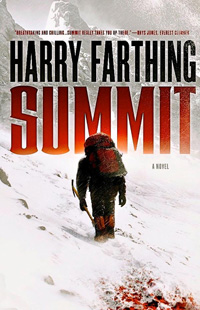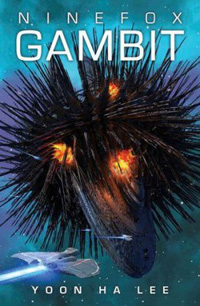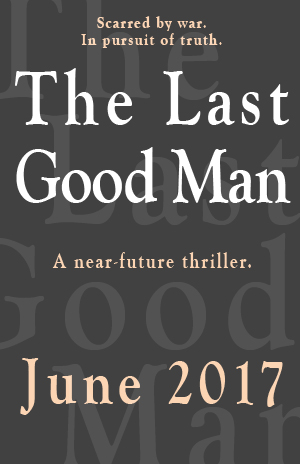 Here we are at the end of the year. It’s a good time to take stock of writerly things. This isn’t meant to be a whiny post. More of a looking-reality-straight-in-the-eye post — and looking ahead at what’s to come
Here we are at the end of the year. It’s a good time to take stock of writerly things. This isn’t meant to be a whiny post. More of a looking-reality-straight-in-the-eye post — and looking ahead at what’s to come
~~~~~
Some writers have nicely ascending career paths. There may be a few setbacks, but overall the trend is up. For many of us – dare I say most of us? – that’s not how it goes. Oh sure, we enjoy the occasional triumph, but our careers are mostly a long, lonely slog through tough, soggy, mosquito-filled terrain, with only an occasional glimpse of snow-capped peaks rising in the distance—the Olympian heights! (This being a metaphor for bestseller lists, in case you missed that.)
For a while, it looked like The Red trilogy was going to be my path out of the fens — if not to the magic mountains, then at least to more solid ground. I mean, the critical response was pretty damn encouraging. Check out some of the crazy quotes here.
If you’re new to this blog and you’ve never heard of these books, here’s a brief history:
Back in 2013, I decided to self-publish the first of the trilogy, The Red: First Light, rather than trying to sell it to a traditional publisher. This was my first science fiction novel in ten years, and it went on to become a finalist for the Nebula award and second runner-up for the John W. Campbell Memorial award. It was picked up by Simon & Schuster’s Saga Press, given a gorgeous new cover, and in that incarnation was named as a Publishers Weekly best book of 2015. Saga Press published the second and third books in the trilogy in quick succession. Book 3, Going Dark, tied for first runner up for the Campbell Memorial award.
So I had reasons to get my hopes up, right?
These books had the most commercial potential of anything I’ve written. They are action oriented, and they extrapolate on real-world technology and politics. They are also heroic stories in which the actions of individuals do matter. Yes, they are written in a cynical tone (an amusingly snarky tone, I hope), but this was cynicism wrapped around a core of idealism. In other words, they’re culturally appropriate for a large swath of American readership. As evidence of that, they’ve had multiple inquiries regarding film and TV rights, and in fact were optioned for TV (an agreement now expired).
This was all far more than I’d expected … but the path peters out if potential readers miss those reviews, or if they decide for reasons of their own to skip the books, or if they never hear of the books at all because they don’t read reviews and rely instead on chance, name recognition, or word of mouth to choose their next read.
The trilogy garnered enthusiastic readers — and I’m grateful for every one of you! — but despite all the good omens, it failed to capture the attention of enough readers to make it a success. Sales languished. The books sank out of sight.
Hell, yes, this was disappointing. And I could write a long, disgruntled post speculating on the reasons why it happened — in fact I did — but I’ll spare you that. We’re here at the turn of the year and it’s time to move on, because…
I’VE GOT ANOTHER NOVEL ON THE WAY!
::cheers::
::confetti::
Hey, I’m excited about it. I hope you are too. I really, really hope you’re excited, because I’m going to need your support on this.
So what’s it called? What’s it about? That post will go up at the New Year. But here’s a hint:
In these crazy, frightening, rapidly changing times my focus has been captured by the near future. Where are we going? What are some of the implications of our rapidly developing technologies? What impact might they have on the way we see ourselves, and on what we value in ourselves, given that we are still operating under the templates of our ancient tribal minds? These are some of the themes behind a thriller that’s written on a very human scale.
So check back soon. And in the meantime, if you haven’t done so already, sign up for my occasional newsletter (see the form in the upper right column). It’s one more way to keep in touch.










 For a long time, I didn’t discuss political issues here or on Twitter but I ended that policy last fall. Failing to object, to protest, the actions of the new administration constitutes failure as a citizen of the United States. Silence is consent — and I don’t concede to any of this.
For a long time, I didn’t discuss political issues here or on Twitter but I ended that policy last fall. Failing to object, to protest, the actions of the new administration constitutes failure as a citizen of the United States. Silence is consent — and I don’t concede to any of this.
 The full title of Trevor Noah’s childhood memoir is Born a Crime: Stories from a South African Childhood. I picked this audiobook because it had been named a best book of the year by several publications, and because the sample I listened to hooked me immediately.
The full title of Trevor Noah’s childhood memoir is Born a Crime: Stories from a South African Childhood. I picked this audiobook because it had been named a best book of the year by several publications, and because the sample I listened to hooked me immediately. I started, and failed to finish, three or four novels before picking up Yoon Ha Lee’s Ninefox Gambit. If you’re looking for something different, something challenging and endlessly interesting — a puzzle to be figured out — try this one.
I started, and failed to finish, three or four novels before picking up Yoon Ha Lee’s Ninefox Gambit. If you’re looking for something different, something challenging and endlessly interesting — a puzzle to be figured out — try this one.
